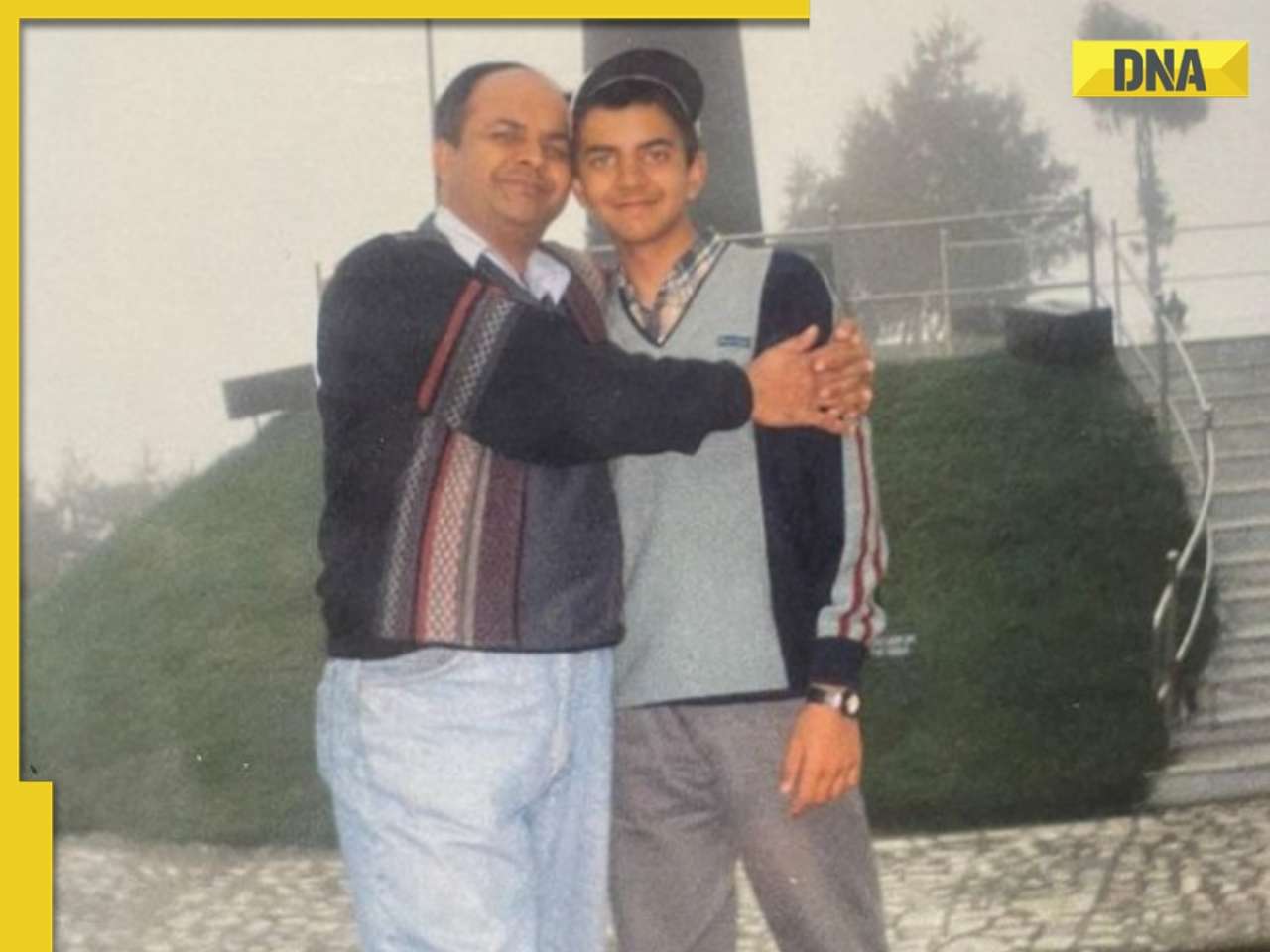Speaking to a cross-section of entrepreneurs, DNA finds that the attitude of India’s business class towards corruption can be summed up in the motto, ‘what cannot be cured must be endured’.
The profusion of scams — IPLgate, the Common Wealth Games scandal, Adarshgate, the 2G spectrum scam, and many others make it seem like its the scam-busting season. No matter where you go, on the local trains, at the office, and even when people gather for an after office drink, all that they can laugh and talk about is how the politicians have been raking it in.
While it does feel good to see corrupt netas exposed for what they are, does this mean corruption will be reduced? Cosmetics baron Maniklal Mulchand Shah does not think so. “For every scam that comes out, ten others are hidden, and even in the ones that are out in the open, because one of the disgruntled partners-in-crime is talking, a quick cover-up is done so that not all the dirt is out.”
According to him, “corruption is omnipresent and I have given up hoping that I’ll be able to get around without greasing palms. After all, when you are stuck, all you want to do is get your work done and move on in life.”
Entrepreneur Vijayata Gandhi, 21, agrees. This young proprietor of Vijayta Entertainment says it is quite disillusioning to see the wanton corruption all around. “All through your childhood you are lectured on the principles of truth and justice, and then you come out into the real world, and it is everything but that.”
But she feels that for every Kalmadi, Chavan and Spectrum Raja, people’s greed is to be blamed as well. “This greed to get ahead of everyone else in a short span of time, without hard work, the greed to undermine your competitor in any which way, the greed to expand more and more just for the sake of expansion — all this fuels the fire of corruption,” she explains, and adds, “the people ready to pay bribes are as much, if not more, at fault as the ones who take it.”
Most businessmen and entrepreneurs DNA contacted believe that it would be “well-nigh impossible,” to get anywhere without greasing palms even if they stuck to the rules.
Take the case of Vanita Mhatre, 32-year-old middle-class housewife who went through hell to come out of an abusive marriage. For the past one year, she, along with three other women who are looking to become financially self reliant have been trying to run a dabba delivery system. No matter how hard she tries to stay within the ambit of the law, she finds it increasingly tough.
“Every time I visit the Shops & Establishments Department for completing the paper work, I am told of a new requirement. Every trip, I have to wait for four to five hours and yet my work is not done. I got them to write down a checklist of all that is required, in their own handwriting. I submitted everything needed and yet I keep getting bounced from one section to another,” she rues, and adds, “Ultimately, a woman in the department told me during my last visit that I would need to shell out Rs15,000 to get the permit done and unless I paid I would keep getting sent back.”
An aghast Mhatre says, “I don’t have that kind of money. An NGO which works with distressed women has helped me find a place for free till I break even but now it looks like I will have to continue selling pickles and papads door-to-door since I don’t have the permit. Without it, the authorities could raid my premises and confiscate all my stuff since its illegal to run an establishment without the right papers.”
Maniklal Shah says this is a dilemma with not only first time entrepreneurs like Vanita but also with seasoned old hands. The root of this evil, according to him, is the knowledge that the bureaucrats will not be touched no-matter-what. “Even a factory inspector visiting your unit will have to be kept happy or he may find the most obscure things and make that the reason for withdrawing our permission to run the unit,” points out Shah, who exports cosmetics to the UK and US.
There are, of course, those like G Vijaykumar, chairman of the Seven H group, who feel that things are beginning to change for the better. “But it will take at least a decade or two. Things always seem a lot worse just before they are about to change for the better,” he says. “What can’t be cured has to be endured, I think young entrepreneurs will do well to learn tact. They should be able to work their way around such graft. A little application of mind will create ways to do this.”
![submenu-img]() Anant Raj Ventures into tier 2 and tier 3 cities, pioneering growth in India’s real estate sector
Anant Raj Ventures into tier 2 and tier 3 cities, pioneering growth in India’s real estate sector![submenu-img]() Sophie Turner reveals she wanted to terminate her first pregnancy with Joe Jonas: 'Didn't know if I wanted...'
Sophie Turner reveals she wanted to terminate her first pregnancy with Joe Jonas: 'Didn't know if I wanted...'![submenu-img]() Meet outsider who was given no money for first film, battled depression, now charges Rs 20 crore per film
Meet outsider who was given no money for first film, battled depression, now charges Rs 20 crore per film![submenu-img]() This is owner of most land in India, owns land in every state, total value is Rs...
This is owner of most land in India, owns land in every state, total value is Rs...![submenu-img]() Meet man who built Rs 39832 crore company after quitting high-paying job, his net worth is..
Meet man who built Rs 39832 crore company after quitting high-paying job, his net worth is..![submenu-img]() Meet woman who first worked at TCS, then left SBI job, cracked UPSC exam with AIR...
Meet woman who first worked at TCS, then left SBI job, cracked UPSC exam with AIR...![submenu-img]() Meet engineer, IIT grad who left lucrative job to crack UPSC in 1st attempt, became IAS, married to an IAS, got AIR...
Meet engineer, IIT grad who left lucrative job to crack UPSC in 1st attempt, became IAS, married to an IAS, got AIR...![submenu-img]() Meet Indian woman who after completing engineering directly got job at Amazon, then Google, Microsoft by using just...
Meet Indian woman who after completing engineering directly got job at Amazon, then Google, Microsoft by using just...![submenu-img]() Meet man who is 47, aspires to crack UPSC, has taken 73 Prelims, 43 Mains, Vikas Divyakirti is his...
Meet man who is 47, aspires to crack UPSC, has taken 73 Prelims, 43 Mains, Vikas Divyakirti is his...![submenu-img]() IIT graduate gets job with Rs 100 crore salary package, fired within a year, he is now working as…
IIT graduate gets job with Rs 100 crore salary package, fired within a year, he is now working as…![submenu-img]() DNA Verified: Is CAA an anti-Muslim law? Centre terms news report as 'misleading'
DNA Verified: Is CAA an anti-Muslim law? Centre terms news report as 'misleading'![submenu-img]() DNA Verified: Lok Sabha Elections 2024 to be held on April 19? Know truth behind viral message
DNA Verified: Lok Sabha Elections 2024 to be held on April 19? Know truth behind viral message![submenu-img]() DNA Verified: Modi govt giving students free laptops under 'One Student One Laptop' scheme? Know truth here
DNA Verified: Modi govt giving students free laptops under 'One Student One Laptop' scheme? Know truth here![submenu-img]() DNA Verified: Shah Rukh Khan denies reports of his role in release of India's naval officers from Qatar
DNA Verified: Shah Rukh Khan denies reports of his role in release of India's naval officers from Qatar![submenu-img]() DNA Verified: Is govt providing Rs 1.6 lakh benefit to girls under PM Ladli Laxmi Yojana? Know truth
DNA Verified: Is govt providing Rs 1.6 lakh benefit to girls under PM Ladli Laxmi Yojana? Know truth![submenu-img]() In pics: Taarak Mehta Ka Ooltah Chashmah actress Deepti Sadhwani dazzles in orange at Cannes debut, sets new record
In pics: Taarak Mehta Ka Ooltah Chashmah actress Deepti Sadhwani dazzles in orange at Cannes debut, sets new record![submenu-img]() Ananya Panday stuns in unseen bikini pictures in first post amid breakup reports, fans call it 'Aditya Roy Kapur's loss'
Ananya Panday stuns in unseen bikini pictures in first post amid breakup reports, fans call it 'Aditya Roy Kapur's loss'![submenu-img]() Remember Harsh Lunia? Just Mohabbat child star, here's how former actor looks now, his wife is Bollywood's popular...
Remember Harsh Lunia? Just Mohabbat child star, here's how former actor looks now, his wife is Bollywood's popular...![submenu-img]() Mother's Day 2024: Bollywood supermoms who balance motherhood, acting, and run multi-crore businesses
Mother's Day 2024: Bollywood supermoms who balance motherhood, acting, and run multi-crore businesses![submenu-img]() Rocky Aur Rani's Golu aka Anjali Anand shocks fans with drastic weight loss without gym, says fitness secret is...
Rocky Aur Rani's Golu aka Anjali Anand shocks fans with drastic weight loss without gym, says fitness secret is...![submenu-img]() Haryana Political Crisis: Will 3 independent MLAs support withdrawal impact the present Nayab Saini led-BJP government?
Haryana Political Crisis: Will 3 independent MLAs support withdrawal impact the present Nayab Saini led-BJP government?![submenu-img]() DNA Explainer: Why Harvey Weinstein's rape conviction was overturned, will beleaguered Hollywood mogul get out of jail?
DNA Explainer: Why Harvey Weinstein's rape conviction was overturned, will beleaguered Hollywood mogul get out of jail?![submenu-img]() What is inheritance tax?
What is inheritance tax?![submenu-img]() DNA Explainer: What is cloud seeding which is blamed for wreaking havoc in Dubai?
DNA Explainer: What is cloud seeding which is blamed for wreaking havoc in Dubai?![submenu-img]() DNA Explainer: What is Israel's Arrow-3 defence system used to intercept Iran's missile attack?
DNA Explainer: What is Israel's Arrow-3 defence system used to intercept Iran's missile attack?![submenu-img]() Sophie Turner reveals she wanted to terminate her first pregnancy with Joe Jonas: 'Didn't know if I wanted...'
Sophie Turner reveals she wanted to terminate her first pregnancy with Joe Jonas: 'Didn't know if I wanted...'![submenu-img]() Meet outsider who was given no money for first film, battled depression, now charges Rs 20 crore per film
Meet outsider who was given no money for first film, battled depression, now charges Rs 20 crore per film![submenu-img]() Meet actress who quit high-paying job for films, director replaced her with star kid, had no money, now lives in...
Meet actress who quit high-paying job for films, director replaced her with star kid, had no money, now lives in...![submenu-img]() This star kid's last 3 films lost Rs 5000000000 at box office, has no solo hit in 5 years, now has lost four films to...
This star kid's last 3 films lost Rs 5000000000 at box office, has no solo hit in 5 years, now has lost four films to...![submenu-img]() Meet actress viral for just walking on screen, belongs to royal family, has no solo hit in 15 years, but still is…
Meet actress viral for just walking on screen, belongs to royal family, has no solo hit in 15 years, but still is…![submenu-img]() This is owner of most land in India, owns land in every state, total value is Rs...
This is owner of most land in India, owns land in every state, total value is Rs...![submenu-img]() Blinkit now gives free dhaniya with veggie orders, thanks to Mumbai mom
Blinkit now gives free dhaniya with veggie orders, thanks to Mumbai mom![submenu-img]() Meet man, an Indian who entered NASA's Hall of Fame by hacking, earlier worked on Apple's...
Meet man, an Indian who entered NASA's Hall of Fame by hacking, earlier worked on Apple's...![submenu-img]() 14 majestic lions cross highway in Gujarat's Amreli, video goes viral
14 majestic lions cross highway in Gujarat's Amreli, video goes viral![submenu-img]() Here's why Isha Ambani was not present during Met Gala 2024 red carpet
Here's why Isha Ambani was not present during Met Gala 2024 red carpet






















































)
)
)
)
)
)